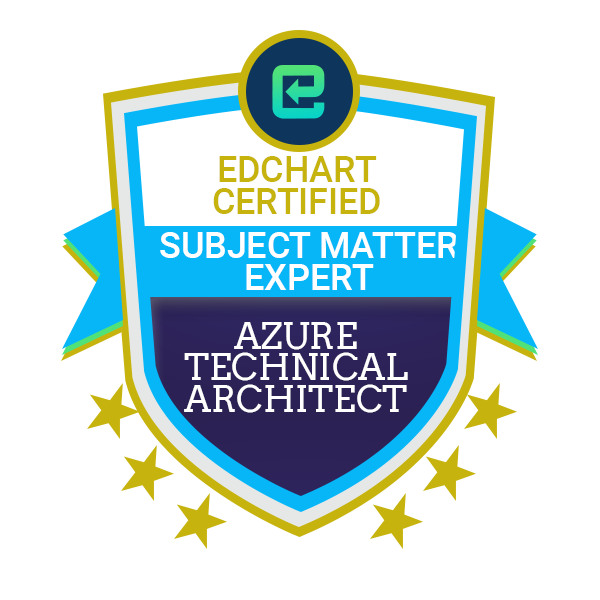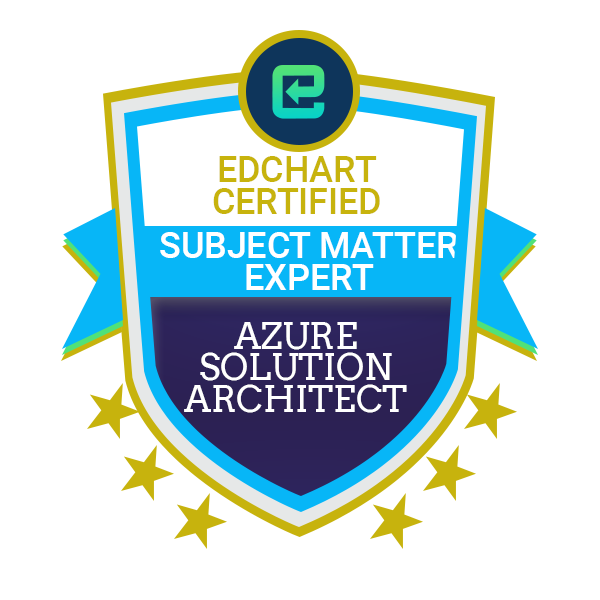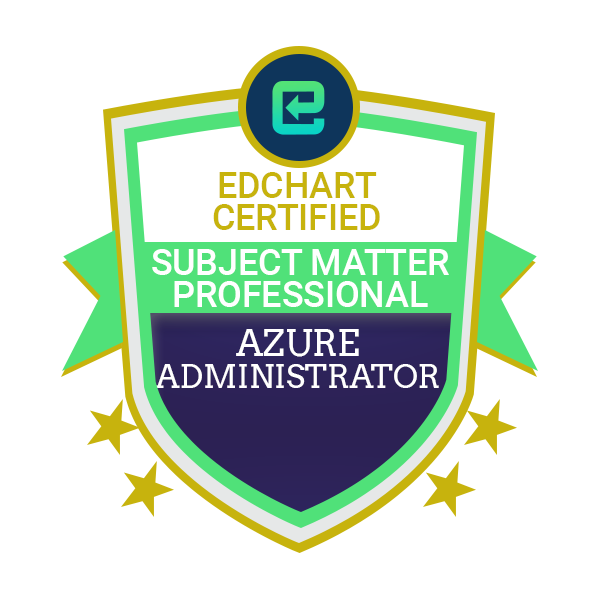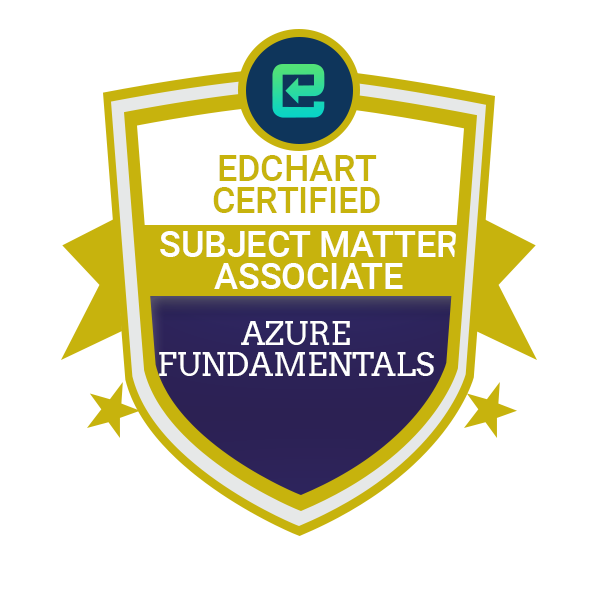
Edchart Certified
Developing Azure Cloud And Web Services SME
Validation of skills: Azure certifications provide a validation of your expertise and skills in developing cloud solutions using Azure services. They demonstrate to employers and clients that you have the knowledge and capabilities to work with Azure effectively. Increased job opportunities: Azure is one of the leading cloud platforms, and many organizations are adopting Azure for their cloud needs. Having Azure certifications can significantly enhance your job prospects, as it demonstrates your proficienc
Azure certification Azure Cloud Services certification Microsoft Azure certification Azure developer certification Azure architect certification Azure administrator certification Azure DevOps certification Azure solutions architect certification Azure developer associate certification Azure administrator associate certification Azure DevOps engineer expert certification Azure fundamentals certification Azure AI engineer certification Azure data engineer certification Azure security engineer certification
| India: |
|
|---|---|
|
Other Countries: |
|
The demand for cloud computing professionals continues to rise, and obtaining a recognized certification can significantly boost one’s career prospects. Developing Azure Cloud and Web Services Certification provides professionals with a unique opportunity to validate their expertise without the need for extensive coursework. This certification is highly valued by employers and is recognized globally, making it an essential credential for those looking to establish themselves in the cloud and web services domain. Additionally, the certification is validated by Credly, ensuring that professionals receive globally acknowledged credentials. Developing Azure Cloud and Web Services Certification.
One of the most significant benefits of the Developing Azure Cloud and Web Services Certification is the ease with which it can be obtained. Unlike traditional certification programs that require candidates to complete extensive training sessions, this certification allows individuals to gain recognition by passing a single test. This streamlined process makes it ideal for professionals who already have experience in Azure cloud and web services and are looking to validate their skills efficiently. Moreover, since the certification is verified by Credly, it holds substantial value in the global job market. Developing Azure Cloud and Web Services Certification.
Scope of the Certification
Cloud computing is a rapidly evolving field, and professionals with Azure expertise are in high demand. The Developing Azure Cloud and Web Services Certification opens doors to various career opportunities, including cloud developer, cloud architect, and DevOps engineer. Many industries, such as finance, healthcare, and e-commerce, rely on Azure-based solutions, making certified professionals invaluable. With the certification backed by Credly, candidates can leverage their credentials to secure positions in leading organizations worldwide. Developing Azure Cloud and Web Services Certification.
Advantages of Certification
The primary advantage of the Developing Azure Cloud and Web Services Certification is its accessibility. Professionals can earn the certification without enrolling in any mandatory training programs, allowing them to save time and money. Additionally, the certification is recognized by companies globally, making it an excellent asset for career growth. Furthermore, with validation from Credly, the certification enhances credibility and showcases expertise in Azure cloud and web services. Developing Azure Cloud and Web Services Certification.
Features of the Certification
This certification is designed for professionals who want to validate their Azure cloud and web services knowledge. Some of its standout features include:
-
No prerequisite courses required
-
A single examination to achieve certification
-
Recognition by leading companies globally
-
Credly-backed credentials for enhanced credibility
-
Ideal for cloud developers, architects, and DevOps professionals
By earning the Developing Azure Cloud and Web Services Certification, professionals demonstrate their ability to develop, deploy, and manage Azure-based applications effectively. Since the certification is verified by Credly, it provides an added layer of authenticity and recognition. Developing Azure Cloud and Web Services Certification.
Benefits of Certification
Obtaining the Developing Azure Cloud and Web Services Certification offers numerous benefits, including:
-
Increased job opportunities in cloud computing
-
Enhanced credibility among employers
-
Competitive advantage in the job market
-
Faster career progression with a globally recognized certification
-
No additional training required, allowing for quick certification
With companies increasingly shifting towards cloud-based solutions, possessing this certification significantly enhances employability. The certification's validation by Credly further strengthens its credibility, making it a highly desirable qualification. Developing Azure Cloud and Web Services Certification.
Conclusion
The Developing Azure Cloud and Web Services Certification is an excellent choice for professionals looking to validate their expertise in cloud computing. Its convenience, global recognition, and industry relevance make it a valuable asset in today’s competitive job market. With no mandatory courses required, candidates can swiftly obtain certification and boost their career prospects. Additionally, the certification’s recognition by Credly ensures that it carries significant weight worldwide. By earning this certification, professionals can position themselves as experts in Azure cloud and web services, opening doors to lucrative career opportunities. Developing Azure Cloud and Web Services Certification.
| Exam Timing: | 60 (Mins) |
|---|---|
| Pass Per | 60% |
| Level | Expert |
| Roles | Software Developer,Web Developer,Cloud Architect |
| No. of Questions | 30 |
-
Bret Bickham (United States of America(USA))Attended on - 2023-11-28 02:09:04
-
Eric Cable (United States of America(USA))Attended on - 2024-07-26 01:51:33
International Recognized Certificates
Get Your Verifiable and Shareable International Digital Certificates
Industry-oriented Skill Sets
Industry experts suggested knowledge-centric Certificates
Edchart Global User Profile
Edchart Global User Profile for each candidate to share and have.




